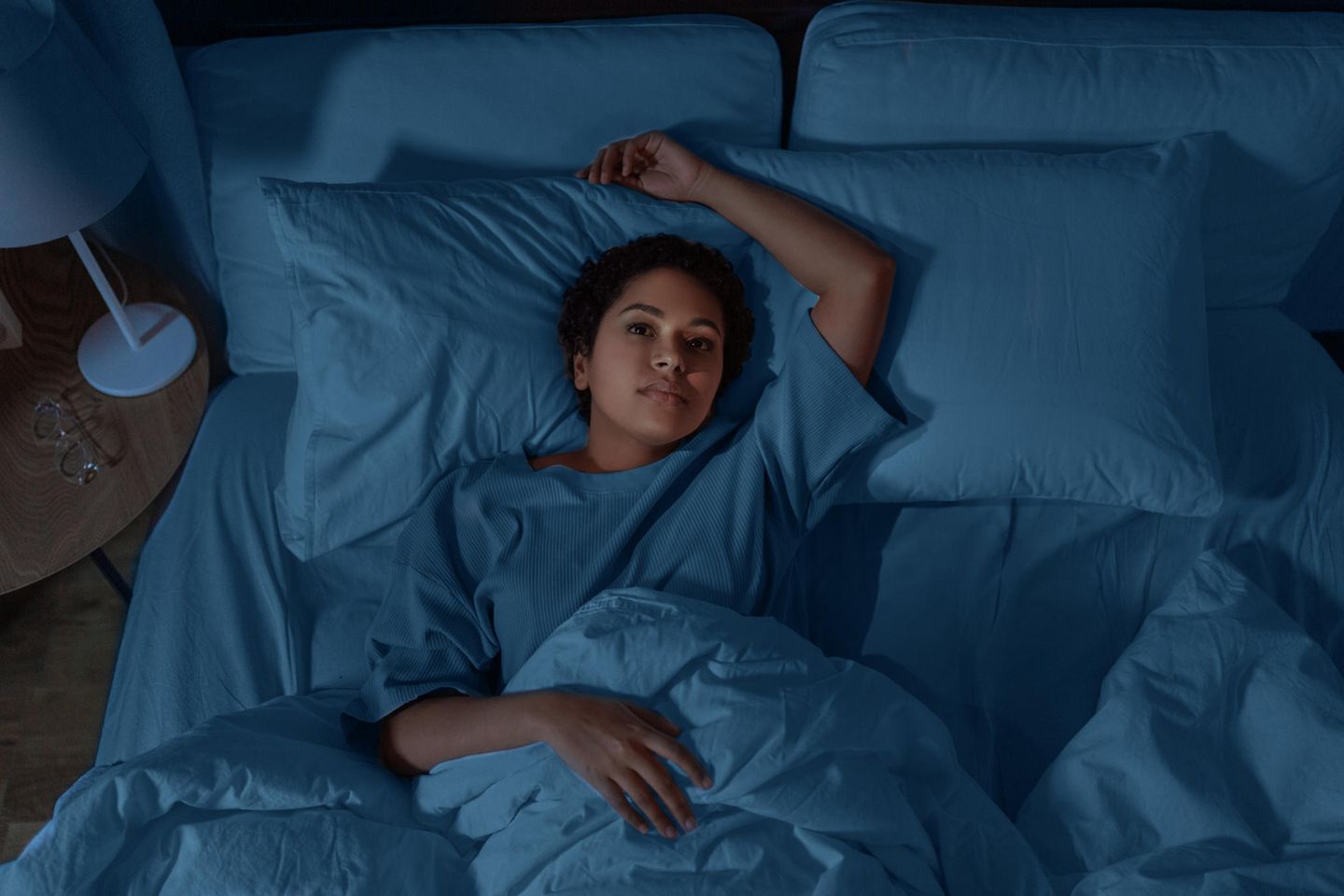Finally settled
Why we fall asleep on the sofa – and are wide awake in bed
© Syda Productions / Adobe Stock
Just now we could hardly keep our eyes open, but as soon as we are in bed, the head carousel turns – why?
Wrapped up in the cozy, warm blanket, we find it harder and harder to keep our eyes open while the noise from the TV slowly lulls us to sleep…
But stop! It’s unhealthy to fall asleep on the sofa, we usually have much less space, it’s a nightmare for our neck and back and the TV disturbs our healthy sleep with light and noise on top of that. So I pulled myself together with the last of my strength, switched off all devices and lights, brushed my teeth and off to bed.
As soon as we lie in it, however, the tiredness is over and we spend the next few minutes or even hours turning around again and again and staring cursing at the ceiling. Why did we sleep so peacefully one moment only to be wide awake the next? That can have several reasons.
Why we find it so easy to fall asleep on the sofa
We usually end up on the couch after a long and demanding day – when we have been awake and active for several hours, the so-called “sleep pressure” is at its highest, i.e. the biologically determined tendency to sleep. Our sleep-wake rhythm also plays a role here: for most people, the bright day is the time when they are active, while the darkness of the evening and night herald the rest and ultimately sleep phase.
Other factors can also contribute to a feeling of sleepiness on the sofa, for example a “heavy” dinner (high in carbohydrates). Whether there is a reliable connection between eating and tiredness has not been scientifically confirmed. But paired with a warm room, possibly dimmed light and the TV program in the background and a comfortable sofa, the eyes can close again and again.
Sleep pressure, your own rhythm, a delicious meal, a warm room on a comfortable floor with pleasant background noise and indirect light – with this list it is really no wonder that we fall asleep so easily on the sofa. That’s not particularly good, though – especially not when we go to bed afterwards.
Why we often lie awake in bed
Even a little nap can cause our sleep pressure to drop – making it harder for us to fall back asleep in our bed afterwards. A short nap of five minutes is not a problem here, but it is different if we doze off for an hour: A sleep cycle lasts about 90 minutes, starts with light sleep, a deep sleep phase and leads back to light sleep. Those who wake up from the deep sleep phase usually feel pretty worn out and can fall asleep in bed more easily than someone who wakes up from a light sleep phase.
The things we do before we go to bed can also make us more awake: turning off the lights, brushing our teeth, and getting ready for bed make us more alert and make it harder to sleep. Studies also show that many people tend to worry in bed, which increases stress levels — and prevents them from falling asleep. Unhealthy sleep hygiene can also make it difficult for us to sleep in bed, for example if we don’t have a fixed routine before going to bed or if we sit on our cell phones for ages before we go to sleep.
And how can you sleep well in bed?
So now we know why the couch makes it particularly easy for us to fall asleep on it and why in bed we tend to do anything but sleep. But how can it be better? By adjusting our bedroom and behavior:
- We ensure that the bedroom is dark, why and cozy – for example, turning on the heater 20 minutes before bedtime or taking a heat pack to bed
- If you like noises to fall asleep, you can listen to a radio play or white noise
- We develop a consistent pre-sleep routine (e.g. always go to bed at the same time)
- The mobile phone has no place in the bedroom (if it is used as an alarm clock, please only use it in flight mode)
Sources used: theconversation.com, sleepfoundation.org, pubmed.ncbi.nlm.nih.gov, sleepfoundation.org, helios-gesundheit.de
